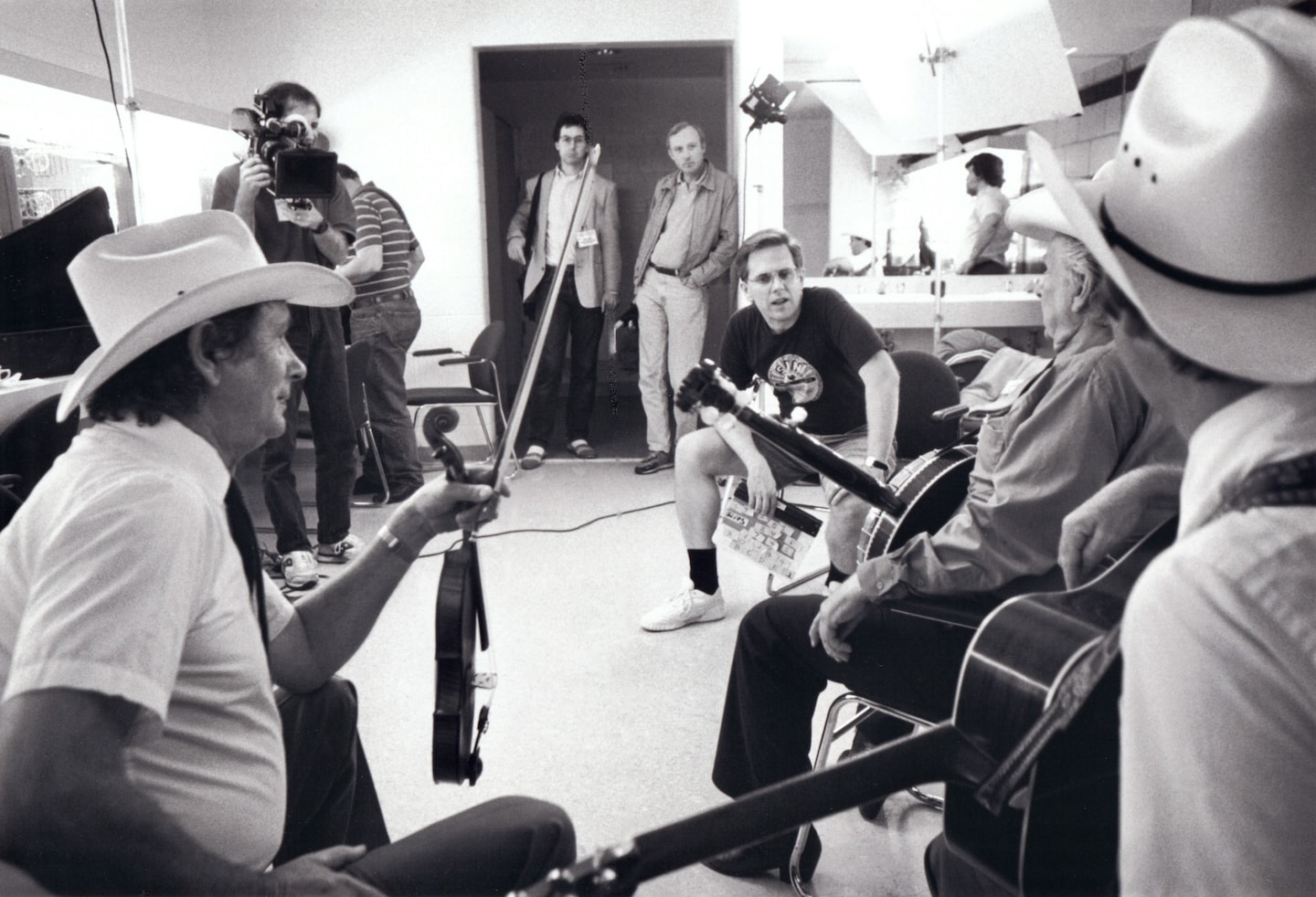There is a scene in the 1980 film “Sun Ra: A Joyful Noise” directed by Robert Mugge where the otherworldly jazz innovator Sun Ra posits that most of this planet’s chaos is caused by people being forced to play music for money. Music, Ra says, is not a mere commodity but the “spiritual language” of Earth. Music goes directly to the heavenly creator as “your personal ambassador.”
If music is a holy ambassador, then Mugge has diplomatic plates on his vehicle. The documentary filmmaker has made films about everything from blues to jazz, bluegrass to reggae, and salsa to soul. A retrospective of the Maryland native’s work is being shown Thursday through Sunday at the AFI Silver Theatre.
Growing up in Montgomery County’s Kemp Mill neighborhood, where he attended Kennedy High in Wheaton, Mugge (pronounced “muggy”) had easy access to the musical offerings of the local rec centers that hosted bands and to shows in the District.
“We’d go down to see Motown revues at the Howard Theatre or WOL soul shows at the Washington Coliseum,” said Mugge, 73. “Or on school nights we’d go down with fake IDs to see Ritchie Havens at the Cellar Door. Washington was very important for me. It had such diverse music. You could be into rock, you could be into soul, you could be into jazz or blues. There was always something going on in D.C.”
Mugge went to the University of Maryland at Baltimore County, where he made a film about Frostburg, Md., then started a graduate degree at Temple University. He thought he would wind up working on feature films, but when his documentary about Philadelphia Mayor Frank Rizzo earned raves and, after he sold it to Swedish television, a bit of money, Mugge suddenly had the funds to capture on film a performer he had been blown away by years earlier in Michigan: Herman “Sun Ra” Blount.
“A Joyful Noise” was a hit, establishing his signature approach: musical performances interspersed with reflective interviews, all shot in a style that recalls the chiaroscuro of an Old Masters painting. “I said, ‘Oh, I guess this is what I’m going to be doing with my life,’” Mugge said on the phone from Muncie, Ind., where he lives.
Mugge added, “I like to make films about people in particular who are not getting the attention they should from the corporate media establishment. They’re people who are doing their work because it’s a mission, because they’re really creative and looking for new things to do with music, new things to express.”
There are D.C. elements in some of his films. Mugge filmed Sun Ra in front of the White House. In “Black Wax,” poet and singer Gil Scott-Heron walks around Washington, boombox in hand, reciting verses about the capital. These are interspersed with a live performance at the old Wax Museum. (Scott-Heron was living here at the time.)
And “The Gospel According to Al Green” includes footage of the soul singer performing at the Bolling Air Force Base noncommissioned officers club. “I tried for 13 months to convince him to make the film,” Mugge said.
He added, “For me, the Al Green film is about various kinds of love, the love that all these female fans felt for him, especially with his early hits, as well as the love between him and producer Willie Mitchell and all they had created together. It’s also a very dramatic story. The film is about a man who flew too close to the sun, got his eyeballs burned and has been singing ever since with fire coming out of his mouth.”
Green had certainly experienced highs and lows in his career and his personal life, culminating in his shedding his pop past and buying a church outside of Memphis.
The killer pace Mugge had for his films has slowed a bit as he spends time remastering and digitizing his work for streaming. He has also just published the book “Notes From the Road: A Filmmaker’s Journey Through American Music.”
“One of the main reasons I wrote the book is because people into jazz know me for the Sun Ra film and the Sonny Rollins film,” Mugge said. People into blues know me for ‘Deep Blues’ and ‘Blues Divas’ and ‘Last of the Mississippi Jukes.’ People into Hawaiian music know me for the two films on Hawaiian music. Salsa people know me for my film on Ruben Blades.”
Mugge has certainly spent a lot of time with a lot of musicians. Is there something they all have in common? “The theme that runs through these films is that, regardless of the genre, they’re all different sides of traditional American music,” he said.
Helping Hand
I’ve just kicked off this year’s Helping Hand campaign, our annual fundraiser for local charities. Visit posthelpinghand.com to learn about Bread for the City, Friendship Place and Miriam’s Kitchen and to donate.
